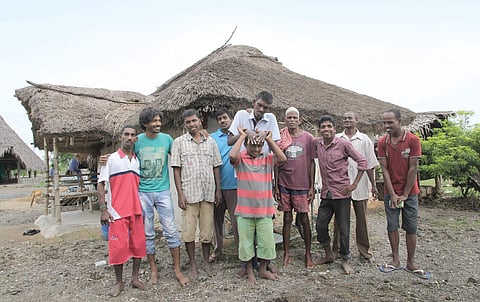

This remote eco-village in Tindivanam, Tamil Nadu, is engaged in rehabilitating people with intellectual disability by going back to the basics of life dictated by Mother Nature. Saravanan P, a 27-year-old man with special needs, underwent vocational training to become an automobile mechanic. But like most of his disabled peers, finding a job was a nightmare. He spent the next six years watching television. He was so addicted to the TV that he would get frustrated if the power shut down even for a minute.
He had broken three TV sets till his family approached Karthik, 33, the founder of Sristi village, for help. Two years later, Saravanan is a completely changed man today. He gets up at 6 am to take cows for grazing, keeps the shed clean, helps in composting, feeds the farm animals and even reminds the vet for administering vaccines. He does get angry when something goes off his routine but nothing that his pets can’t handle.
Sristi Village, a farm set up on 8.3 acre land at Konamangalam village, is revolutionising the way mental health is perceived and handled in India. Karthik says, “I grew up in an orphanage along with people who had intellectual disabilities. I saw them sit around and waste their lives because ‘we the normal people’ weren’t letting them work with us. But I wanted them to be independent.”
So, he and his family tried activities like handicraft, mechanical training and so on. “And it was finally our backyard garden that gave me the idea of using farming to build a sustainable community for my friends,” he says.
Kanthari organisation seed-funded the project in 2013 and there’s been no turning back for them.
But before Karthik could train his friends to farm, the first challenge was the barren land. With the help of local farm hand, the land was brought to life by stepping up water conservation. With rough pits, natural fertilisers and a willing team of helpers, they started cultivating greens. “We have been using completely organic methods of farming as we want to produce only healthy food,” Karthik says.
Not just farming, the 15-member team segregates waste for recycling, uses ash to clean vessels and even solar panels for electricity. They also have a rain-water harvesting system in place.
Contrary to other locked-in facilities, members of Sristi farm are free to be whatever they want to be. “Unlike mental illness, mental retardation cannot be cured but such people can be rehabilitated. Though we need to monitor people who can self-hurt or hurt others, locking them in isn’t a solution. My friends here prefer routine and like doing repetitive tasks.”
Clinical physiologist Bindu Modi agrees on this. She says, “Being with nature can be highly therapeutic. Farming helps channelising signs of physical aggression.”
Karthik plans to market the farm’s produce to outsiders soon and start a full-fledged farming academy for intellectually disabled people to live independently or semi-independently. “We should just let them be,” he signs off.